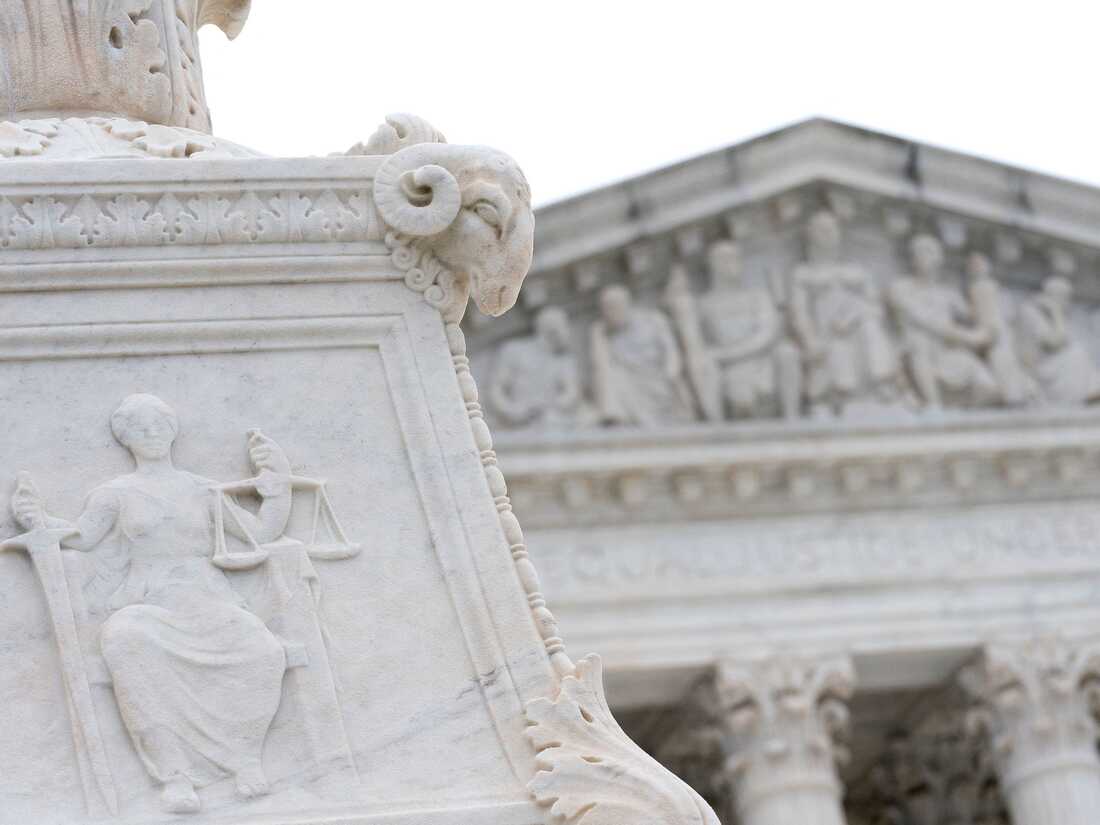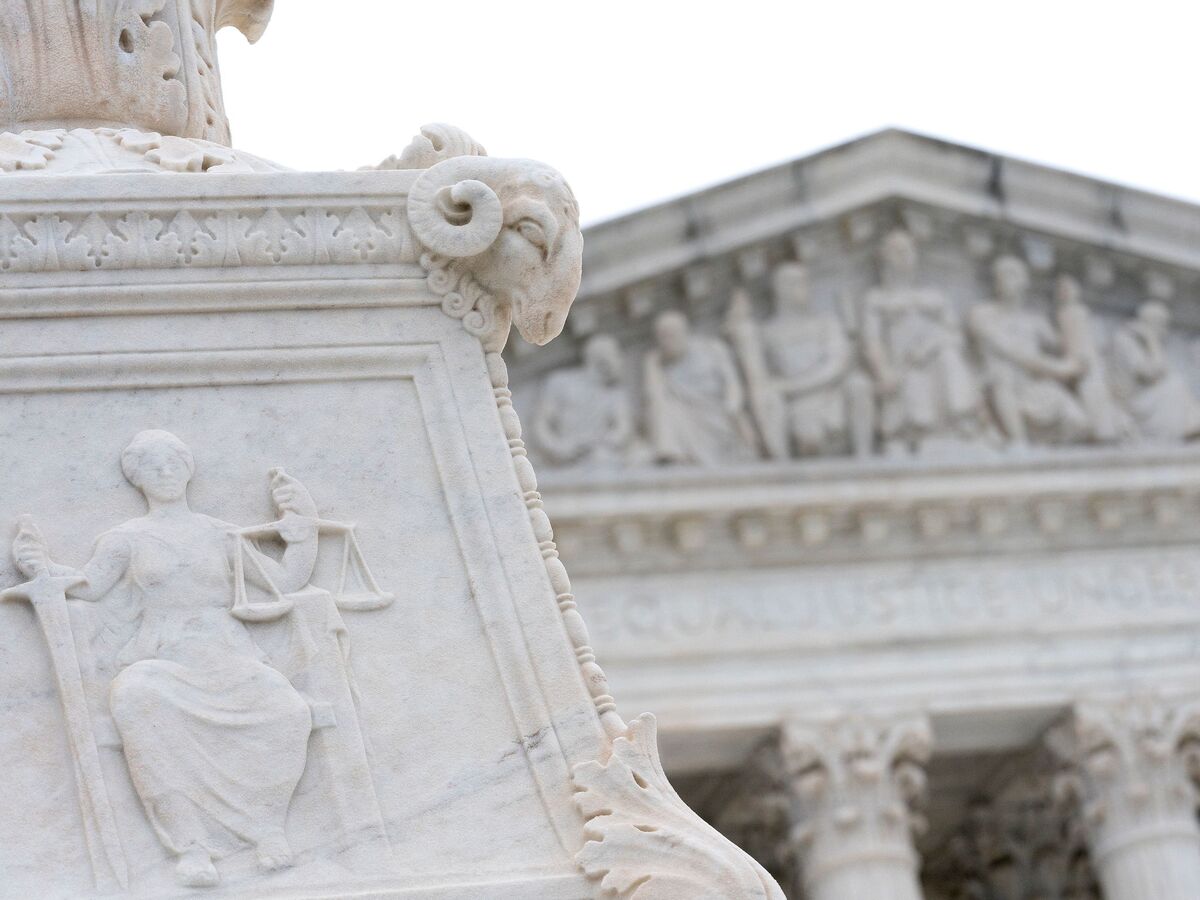
An engraving of the Contemplation of Justice outside the US Supreme Court in Washington, DC. STEFANI REYNOLDS/AFP via Getty Images hide caption

An engraving of the Contemplation of Justice outside the US Supreme Court in Washington, DC.
STEFANI REYNOLDS/AFP via Getty ImagesWhen President Biden announced that he would nominate a Black woman—the Supreme Court's first—to the seat that will be vacated by retiring Justice Stephen Breyer, criticism from some on the right began almost immediately.
Senator Ted Cruz, R-Texas, said it was "racist" to consider only Black women for the post, and Biden's decision was "insulting to African-American women."
The conversation about identity and qualifications echoes some of the questions that arose when another breakthrough appointment was announced more than 50 years ago.
In 1966 Constance Baker Motley became the first Black woman to serve on the federal bench. Her identity and lived experience as a civil rights attorney loomed large in the debate about her fitness to serve.
Tomiko Brown-Nagin, dean of Harvard Radcliffe Institute, and author of Civil Rights Queen: Constance Baker Motley and the Struggle For Equality, discusses Motley's nomination and her career. She says Motley supported the appointment of women and people of color to the federal judiciary as a way to strengthen the institution.
Email us at
This episode was produced by Connor Donevan. It was edited by Fatma Tanis and Amy Isackson. Our executive producer is Cara Tallo.

 Live Radio
Live Radio